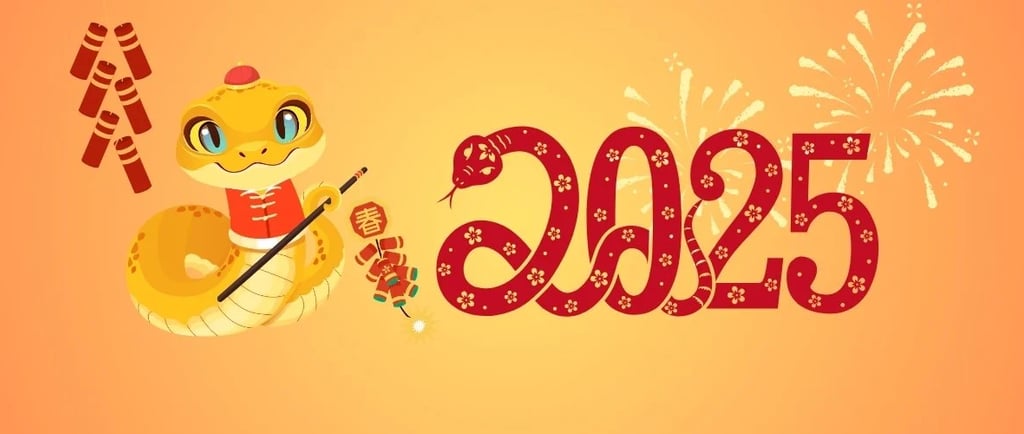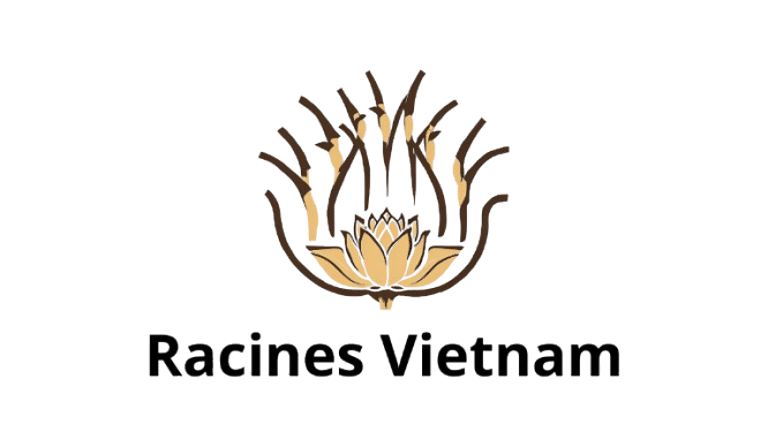“A blog created by an adopted Franco-Vietnamese for all those seeking to reconnect with their origins.”
How Vietnamese Culture Interprets Luck and Destiny: Karma, Symbols, and Spiritual Traditions
Discover how Vietnamese people perceive luck and destiny through Buddhist teachings, karma, rituals, and spiritual symbols. A deep dive into Vietnam's mystical traditions.
4/11/20256 min read


Vietnamese Good Luck Charms: How Vietnamese Culture Perceives Luck and Destiny in 2025
Introduction: The Spiritual Tapestry of Luck and Destiny in Vietnam
In Vietnam, luck (may mắn) and destiny (số phận) aren't just abstract concepts; they're deeply woven into the fabric of daily life. Shaped by centuries of Buddhist, Confucian, Taoist, and animist influences, Vietnamese culture views destiny not only as a prewritten path but also as something profoundly shaped by individual actions and spiritual practices. Wisdom passed down from elders, the profound teachings of the Buddha (Dharma), and diligent meditation practices in serene temples and monasteries all contribute to this deeply spiritual perception.
Let's explore how Vietnamese people understand and experience the concepts of luck and destiny — through the rich lens of Mahayana Buddhism, subtle Tibetan traditions, and the broader spiritual heritage of Asia. This guide will help you understand the core of Vietnamese good luck charms and their significance in 2025.
The Importance of Destiny in Vietnamese Culture: A Cosmic Thread
1. A Belief Rooted in Ancestral Wisdom and Cosmic Patterns
Destiny is often seen as a cosmic or divine force, a spiritual thread determined by one’s birth and past actions. Deeply inspired by Eastern philosophies—Confucianism, Buddhism, and Taoism—the Vietnamese view teaches that each person has a life path influenced by the heavens. It's a blend of what's given and what can be cultivated.
Core beliefs connected to destiny include:
Vietnamese astrology: Based on lunar cycles and celestial patterns, providing insights into one's inherent path.
Ancestor worship: Practices involving prayers for guidance and protection, seeking blessings from those who came before.
Divination rituals: Such as xăm fortune sticks drawn at pagodas, offering glimpses into future prospects.
Study of the Dharma and Buddhist scriptures (sutras, including the profound Lotus Sutra, and the ancient Pali-Canon), which lay out principles of existence and liberation.
Meditation on emptiness and impermanence: Practices to gain insight into the true nature of reality.
Chanting and realization of the Four Noble Truths: The foundational teachings of the Buddha on suffering, its cause, cessation, and the path to liberation.
Insight into rebirth and the cycle of samsara: Understanding how past actions influence present and future lives.
Reflection on the life of the Buddha and broad Buddhist philosophy: Guiding principles for virtuous living.
2. The Role of Karma: Shaping Your Own Path
Influenced heavily by Buddhist doctrine, many Vietnamese believe destiny is not irrevocably fixed. Karma—the sum of one’s actions (both good and bad)—plays a critical role. A virtuous life, deeply grounded in compassion and the profound teachings of the Buddha, can significantly alter one’s fate. This belief is consistently reinforced by the guidance of the Sangha (monastic community), wise Buddhist monks, and dedicated nuns.
Buddhist philosophy emphasizes that understanding the Noble Truths, walking the Eightfold Path, and practicing meditation can lead to liberation from suffering and even destiny’s constraints. Ignorance and attachment are seen as core causes of suffering, while mindfulness and realization bring awakening and positive change.
Luck: A Force You Can Attract in Vietnamese Culture
In Vietnamese culture, luck isn’t simply left to chance—it’s actively cultivated and attracted. From traditional household decor to heartfelt religious offerings, symbols of good fortune are ubiquitous, acting as prominent Vietnamese good luck charms.
1. Everyday Vietnamese Good Luck Charms and Symbols of Fortune
You'll see these symbols everywhere, serving as tangible Vietnamese good luck charms:
Number 8: Universally recognized for prosperity and wealth.
Dragons: Powerful symbols of protection, power, and success.
Lotus flowers: Representing purity, spiritual enlightenment, and beauty.
Red envelopes (lì xì): Given during Tết (Lunar New Year) as blessings for fortune and happiness.
Kumquat trees: Symbolizing fertility, abundance, and family happiness.
Tibetan prayer wheels: Sometimes found in spiritual centers, believed to generate continuous fortune through the turning of mantras.
2. Celebrations and Rituals to Invite Luck
The Vietnamese New Year, Tết, is the most auspicious time of the year, a period brimming with rituals to invite luck. People flock to Buddhist temples, chant Sanskrit mantras, engage in specific rituals, and sometimes seek blessings from monks or Tibetan Rinpoches. These actions aim to bring protection, clarity, and a highly favorable new beginning, reinforcing the power of Vietnamese good luck charms and traditions.
Free Will vs. Fate: The Vietnamese Balance
Even though destiny is deeply respected, it’s rarely considered absolute or unchangeable. In modern Vietnam, influenced by both profound spiritual traditions and emerging Western ideas, personal effort and diligent mindfulness are seen as key drivers of personal transformation and self-shaping.
Core values that embody this balance include:
Education and self-cultivation: Investing in personal growth and knowledge.
Hard work and persistence: Recognizing the power of effort in overcoming challenges.
Zen meditation and the Mahayana path: Practices aimed at profound self-understanding and compassion.
The aspiration to become a Bodhisattva: An enlightened being dedicated to helping all sentient beings achieve liberation.
Practice within monasteries and various Buddhist traditions: Engaging with structured spiritual paths.
Engagement with Buddhist studies and texts: Deepening understanding of the Dharma.
Meditate to understand Buddha nature and achieve awakening: The ultimate goal of much Buddhist practice.
Pursue merit through rituals and virtuous actions: Building positive karma.
Explore esoteric teachings, tantra, and ordination paths: For those seeking deeper spiritual commitment.
Generational and Regional Differences in Belief
The perception of luck and destiny can vary across Vietnam:
Northern Vietnam: Often shows a stronger attachment to classical Confucian and Buddhist rituals, including elements of Theravada Buddhism.
Southern Vietnam: Tends to display more openness to Western ideas, sometimes influenced by Vajrayana Buddhism and various Tibetan sects.
Younger generations: Seek a balance between tradition, spiritual exploration, and modern life through diverse influences like Zen Buddhism, Pure Land Buddhism, and even Nichiren Buddhism. They blend ancient wisdom with contemporary life.
Sacred Places of Luck in Vietnam: Where Blessings Are Sought
Across Vietnam, certain sacred sites are particularly renowned for bestowing luck and fulfilling specific wishes, often visited with offerings and prayers:
Bà Chúa Kho Pagoda (Bac Ninh): A famous destination to pray for wealth and prosperity, a hub for those seeking financial fortune.
Perfume Pagoda (Hà Nội): A sprawling complex where pilgrims seek peace, clarity, and success in their endeavors.
Ngọc Sơn Temple (Hà Nội): Popular among students, this temple is frequently visited to pray for academic success and passing exams.
Zen monasteries and Tibetan centers: Places to practice meditation, engage in chanting, and seek profound enlightenment and spiritual liberation.
An Emotional Connection to Destiny: A Spiritual Quest
In rural areas of Vietnam, stories of profound spiritual encounters abound—an elder meeting a lama, a heartfelt prayer to the Dalai Lama, or a transformative meditation on impermanence that shifted a life path. These tales reflect a deeply emotional and mystical connection to fate and realization.
For many, luck and destiny are not abstract ideas but an intimate spiritual quest—a journey toward nirvana, shaped by the Dharma, guided by the Sangha, and illuminated by personal awakening. Teachings from ancient Lanka and the timeless words of Shakyamuni continue to inspire sentient beings on this profound path, encouraging them to move beyond worldly concerns and focus on attained wisdom.
FAQ – Luck and Destiny in Vietnamese Culture (2025)
Q: What does luck mean in Vietnamese culture? A: Luck is perceived as a mix of favorable circumstances, spiritual protection, and positive karmic results. It’s closely tied to Buddhist practices and traditional Vietnamese good luck charms and symbols.
Q: How do Vietnamese people attract luck? A: They attract luck through the use of symbols like the lotus, dragons, and red envelopes; by performing rituals at Buddhist temples; and by diligently practicing Dharma teachings and meditation.
Q: Is destiny considered unchangeable in Vietnam? A: No. While destiny holds significance, it's not seen as entirely fixed. It can be transformed through cultivating good karma, living mindfully, and engaging in dedicated spiritual practices such as tantric meditation and gaining insight into impermanence. This reflects the principle of the Middle Way in Buddhist philosophy.
Q: What role do temples and pagodas play in luck? A: Temples and pagodas serve as vital spiritual centers where people offer prayers, perform rituals, and seek guidance from Buddhist monks or nuns to help shape their path toward a better future and attract luck.
Q: How does Buddhism influence Vietnamese views of destiny? A: Vietnamese Buddhism, encompassing various schools of Buddhism like Tibetan, Mahayana, Zen, Theravada, and Vajrayana sects, profoundly teaches that destiny is shaped by karma and can be transformed through awakening, compassion, and following the Bodhisattva path. This lineage has been preserved over centuries, influencing how Vietnamese practitioners understand phenomena and consciousness.
Conclusion: A Harmonious Blend of Faith and Free Will
In Vietnam, luck and destiny are not just philosophical ideas—they are deeply felt forces that influence daily life, decisions, and dreams. Blending ancient wisdom, profound Buddhist practice, and conscious modern effort, the Vietnamese walk a unique path where faith, mindfulness, and free will coexist harmoniously. In this continuous spiritual journey, the ego dissolves to make room for awakening, compassion, and the pursuit of nirvana. The history of Buddhism in the region, including Chinese Buddhism influences, continues to inspire practitioners, guided by Buddhist teachers and their disciples, to attain a deeper understanding of themselves and the world.
Embrace the fascinating world of Vietnamese good luck charms and the profound spiritual understanding that underpins them. What aspect of Vietnamese spirituality are you most curious to explore further?
Main Menu:
Explorations:
Resources & Immersive Content
Community & Support
Legal & Languages
Contact & Social Networks
✉️ contact@racinesvietnam.com
📱 Instagram | Facebook | YouTube
©️ Copyright
© 2025 RacinesVietnam.com — Tous droits réservés
Site indépendant, créé sans code, hébergé par Hostinger
